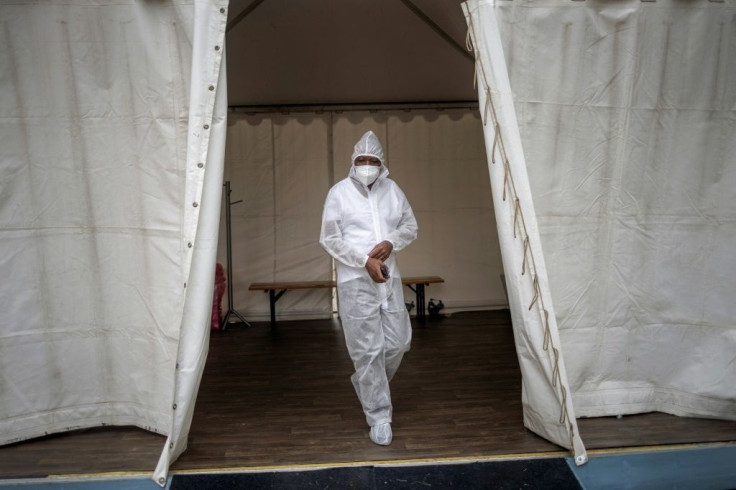New COVID-19 Variants: How To Protect Yourself
KEY POINTS
- Viruses like SARS COV-2 tend to create new variants through mutation
- So far, several COVID-19 variants that appear to spread more easily have been detected
- There are simple things people can do to protect themselves against the new variants
Scientists continue to study the SARS-CoV-2 virus that causes COVID-19 as newer strains are being documented in different parts of the world. People are wondering how can they protect themselves against these new variants.
Viruses tend to change through mutation, the Centers for Disease Control and Prevention (CDC) said. While changes usually disappear eventually, others persist. So far, several variants of the virus that causes COVID-19 have been discovered.
One is the U.K. variant (B.1.1.7) that is believed to spread more easily than other variants. Second is the South Africa variant (B.1.351), which The Washington Post noted as appearing to affect more young people. Last is the Brazil variant (P.1) that seems to have mutations affecting its ability to be recognized by antibodies.
These new variants appear to be spreading more easily compared to the earlier ones, the CDC said. As such, there is a concern that the rapid spread could lead to more cases of COVID-19. This could once again strain health care systems.
So far, there are still many things that scientists want to know about the new variants. For instance, they want to know how far they have already spread or their possible effect on the efficacy of current therapies and even the vaccines.
So how can we protect ourselves from potentially more infectious new variants? Here are some simple ways, courtesy of Healthline, the CDC, and Global Citizen.
Keep It From Spreading
As simple as it sounds, following the same simple protocols that we have been following for the last year is key to keeping the new variants at bay. As The Washington Post explained, it's harder for viruses to mutate if they don't replicate.
This means that by following the simple steps of washing our hands, wearing masks, and practicing social distancing, we are not only protecting ourselves and the people around us from contracting the virus, but we may also be making it harder for the virus to mutate.
Limit Your 'Social Bubble'
Contact tracing is much harder if a person who tested positive has spent more time with more people they don't live with. Since total isolation is quite difficult and rather impractical, Healthline suggests adjusting one's social bubble instead.
This means reducing the people you come into contact with to a safer number and, preferably, with those you know are taking the proper precautions. Again, this isn't exactly a new approach, but it's something that people have perhaps become lax about as the pandemic wears on.
"We are social creatures, so isolation is never a good thing. But if you can identify a safe bubble of a few very trusted people, then you should be able to get through this pandemic," medical director of Sollis Health in Los Angeles, Dr. Scott Braunstein, told Healthline. "But having a super large circle could be hard to manage. Keep it to single digits."
Get Vaccinated When You Can
Experts are still studying how effective the vaccines currently being rolled out are against the new variants.
"So far, studies suggest that antibodies generated through vaccination with currently authorized vaccines recognize these variants," the CDC said. "This is being closely investigated, and more studies are underway."
In the future, it's possible that people would need updates on their vaccines, much like the annual flu shot. However, for now, people need to get vaccinated once they're eligible for it to slow down the spread of the virus.
"Rigorous and increased compliance with public health mitigation strategies, such as vaccination, physical distancing, use of masks, hand hygiene, and isolation and quarantine, is essential to limit the spread of the virus that causes COVID-19 and protect public health," the CDC said.

© Copyright IBTimes 2025. All rights reserved.






















